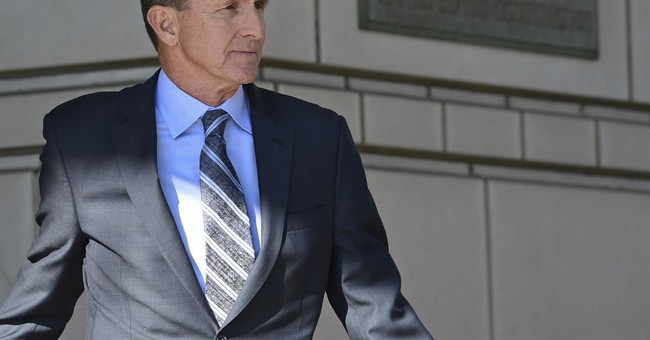
By using an Information to charge Gen. Flynn, the Special Counsel’s Office was able to deny to his attorneys the documents that might have convinced him to fight the charges the Special Counsel was threatening to file. We now know that documents existed upon which Gen. Flynn could have mounted a vigorous defense to any prosecution — but those documents were never disclosed to him by the Special Counsel.
This is the first of a two-part story dealing with the recent revelations concerning the investigation of Gen. Flynn which led to his plea of guilty to misleading FBI Agents who interviewed him three days after the start of the Trump Administration. Part One explains the “process” that led to his guilty plea, and his “admission” in open court that he had committed the crimes as alleged by the Special Counsel’s Office. Part Two will address why the documents recently made public demonstrate that Gen. Flynn’s admissions were coerced, and were in fact factually inaccurate statements drafted and forced upon him by the Special Counsel’s Office.
Understanding the factual context and sequence of events that led to the guilty plea by General Michael Flynn is critical to understanding the significance of the recent revelations in documents produced by the Department of Justice to his current attorneys.
In this first of two parts, I’ll review the process that led to General Flynn’s decision to accept the plea proposal put forward by the Special Counsel’s Office, with some emphasis and examination on the “blind spots” in the process that federal prosecutors can use as leverage to coerce a plea from a reluctant – and likely even innocent — defendant such as Gen. Flynn.
General Flynn entered his guilty plea on Friday, December 1, 2017, to the charge that he knowingly and intentionally made false representations, and omitted material information, in responding to questions posed to him by FBI Agents who interviewed him on January 24, 2017.
Gen. Flynn pled guilty to an “Information” which is a charging document created and signed by a Department of Justice prosecutor – in this case, a member of Robert Mueller’s Special Counsel’s Office (SCO). Charging by way of Information is an alternative to seeking an “Indictment” from a federal grand jury, and can only be done with the consent of the defendant charged in that fashion.
Charging by way of “Information” happens almost exclusively when the prosecution and defense have agreed in advance to the specific crime(s) the defendant will plead guilty to having committed. The terms of the deal are set forth in another document called a “Plea Agreement,” which includes a “factual” section describing what it is the defendant admits to having done. The “factual basis” must establish each element of the offense charged. This “factual basis” is, for all practical purposes, a “confession” by the defendant.
This kind of outcome is not called a “plea bargain” – it’s called a “charge bargain.” A “plea bargain” is negotiated after an Indictment is filed, and the defense has been provided the discovery in the case. “Discovery” includes the documents, witness statements, and physical evidence which the government believes will be used in a trial to establish the defendant’s guilt. The “plea bargain” process can involve a “give and take” negotiation between the two sides resulting in a written agreement wherein the defendant admits to one or more of the offenses charged in the Indictment, normally in exchange for the government’s agreement to dismiss the remaining charges. But the defendant, for the most part, understands the nature of the evidence the government possesses with regard to the crimes charged and can make a judgment for himself as to the “strength” of the government’s case against him when deciding to take the case to trial or accept the plea bargain offered.
A “charge bargain” – as happened in General Flynn’s case — comes before the government has filed an Indictment. The government only “threatens” the putative defendant with being charged with more serious offenses if the defendant doesn’t agree to plead guilty as suggested by the prosecutor. But what other charges the defendant might be facing — and the nature of the evidence supporting such potential charges – are commonly known only to the prosecutor. The defendant and his attorney know only what the prosecutor chooses to share with them.
When moving forward to a guilty plea pursuant to an Information, the prosecution has no obligation to provide “discovery” to a defendant. The right to discovery only arises when a defendant is charged by way of Indictment and makes an appearance in court to enter a “not guilty” plea. One significant category of evidence the government must produce after an Indictment is any relevant written or recorded statements made by the defendant which are in the government’s possession. In a case like Gen. Flynn’s where the allegations involve lying to investigators, the discovery would include all the memorandum of interview(s) conducted of the defendant. This means that a defendant pleading guilty to a “false statement” charge would have the Agent’s report of his interview, and he would know exactly what the Agents wrote in their report about what they claim a defendant said in the interview. But a defendant pleading guilty to an Information must make that decision without the right to see the FBI Agent’s report — unless it is given to him by the prosecution.
When Gen. Flynn and his attorneys began discussing a possible plea deal with the SCO, no Indictment had been filed, and no discovery rights/obligations existed. Since changing lawyers in June 2019, hiring attorney Sidney Powell, the subject of the defense getting access to all versions of the memorandum of interview from the January 24, 2017, interview – referred to FBI form “302” – has been extensively litigated. What seems clear now is that the 302 of the January 24 interview underwent several revisions from start to finish in the weeks and months following the interview. But it also seems that Gen. Flynn’s previous attorneys either never asked for – or they simply never received — either the final version of the 302 or any of the earlier versions of the draft 302 that are now known to have existed.
What that means is that when Gen. Flynn’s attorneys were negotiating the “factual basis” of his plea agreement – the “facts” of his confession — Gen. Flynn’s attorneys did not know what the Agents had written about what they claimed he said. If both sides had access to the documents there would be little or no need for lengthy negotiations over the language in the plea agreement. Both sides could point to specific passages in the transcript, and the specific words of the Agents reporting what Gen. Flynn had told them, and the “factual basis” for his misrepresentations or omissions would be easily set forth. If Gen. Flynn disagreed with the Agents’ 302, his attorneys could point to their specific words, and characterize the nature of Gen. Flynn’s disagreement with what they wrote. Without knowing the specific words in the report, Gen. Flynn’s attorneys could only base their advice to Gen. Flynn on what the SCO prosecutor said the Agents had written.
The factual basis set forth in the plea agreement is drafted by the prosecutor. Ultimately the defendant must agree to a factual basis before each side signs the agreement. But, in the end, the facts say what the prosecutor wants them to say, and the defendant has a “take it or leave it” decision to make. This often comes down to a “risk/benefit” calculation about what is more important — the strict accuracy of the prosecutor’s language, or the outcome of the case that might ride on the willingness to accept less-than-perfect language. For Gen. Flynn the outcome of the case was as good as he could expect — a “no time” recommendation to a sentence of probation, and no exposure for people close to him.
With the benefit of hindsight, and having now had a bit of a window into the way the SCO operated, it does not seem unfair to consider the real likelihood that the SCO prosecutor was not upfront and “forthright” in communicating what the Agents wrote in their report. But the dynamic of the process, in this kind of circumstance, is that the prosecutor holds all the cards when it comes to what the defendant will be compelled to admit in the “factual basis” of the plea agreement.
The key point to understand – based on what’s been filed and reported — is that only the SCO had all the documents to work with when hashing out the language of Gen. Flynn’s “confession.” He had a transcript of Gen. Flynn’s calls with the Russian Ambassador, and he had the Agents’ report of what they said Gen. Flynn said in response to their questions. With this “monopoly” on information, the SCO prosecutor could “characterize” what the Agents had written in a manner most optimal to his negotiating tactics. He did not have to fear being contradicted because Gen. Flynn’s attorneys did not have the same source documents to work with. Given his track record, I have no confidence that SCO prosecutor Van Grack was “forthright” in characterizing what he expected the Agents would to testify to if Gen. Flynn refused to plead guilty. We saw for ourselves how the FARA prosecution of Gen. Flynn’s former business partner buckled and collapsed under scrutiny in a trial. We see how the “Troll Farm” case buckled and collapsed when the SCO’s “dream team” of prosecutors had to actually defend the Indictment they conned a grand jury into returning.
SCO prosecutor Van Grack demanded that General Flynn make a decision to plead guilty or face indictment on a very short time frame. Just 30 days earlier Manafort and Gates had been indicted. Papadopoulos had pled guilty only 45 days earlier.
When you see former federal prosecutors – or wannabe pretenders like Benjamin Wittes at Lawfareblog – repeatedly point to the fact that Gen. Flynn “admitted” to having committed the crimes with which he was charged, keep in mind that Gen. Flynn “admitted” to the characterization of events and statements that was fashioned by SCO prosecutor Van Grack, and Gen. Flynn had precious little leeway when having to decide whether to agree or not agree to the SCO’s characterization of the facts. His options were to accept what was presented, or to continue spending hundreds of thousands of dollars in his own defense, and possibly expose family members to criminal charges by the same prosecutors he was watching run roughshod over the lives of numerous individuals simply because they had the temerity to work for the Trump campaign, or in the Trump Administration.
I’ve been there, and I did this. I used the “process” to leverage guilty pleas on my terms. I raised the price of saying “no” so high that I knew the defendants couldn’t do anything but say “yes” to what I was demanding in terms of a guilty plea. I didn’t demand that anyone admit anything that was false, but I knew defendants would sign whatever I wrote in the end because they had nothing to bargain with.
It comes down to the integrity and motives of the prosecutor. The SCO staff hired by Mueller have revealed themselves over time to not warrant any favorable presumptions on either count.
Coming up in Part 2 – How the Documents Undermine the “Materiality” Element of the Offense to Which Gen. Flynn Was Coerced to Plead Guilty.


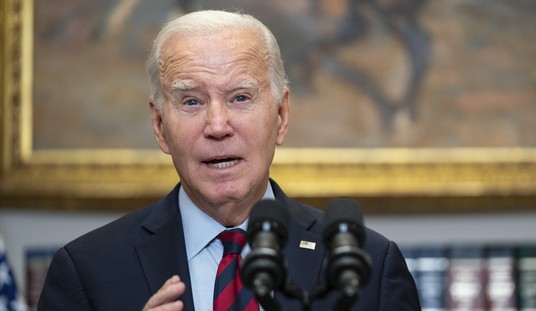


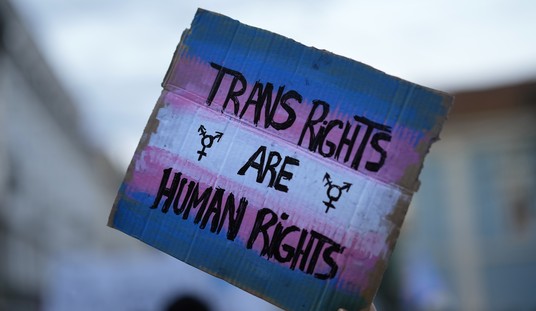




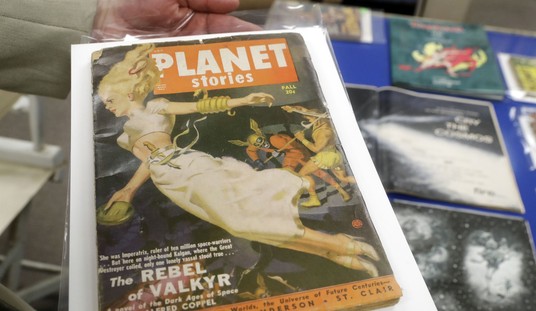
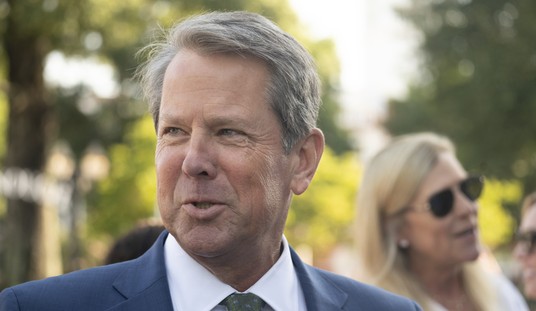


Join the conversation as a VIP Member